#british & hollywood films
Text
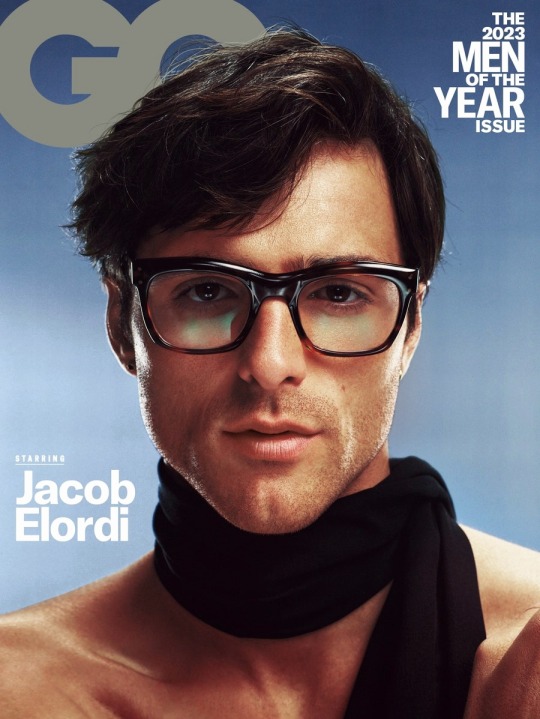
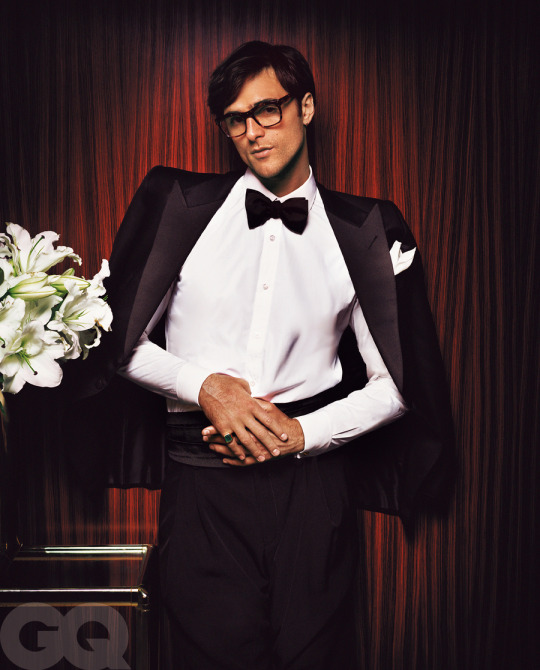

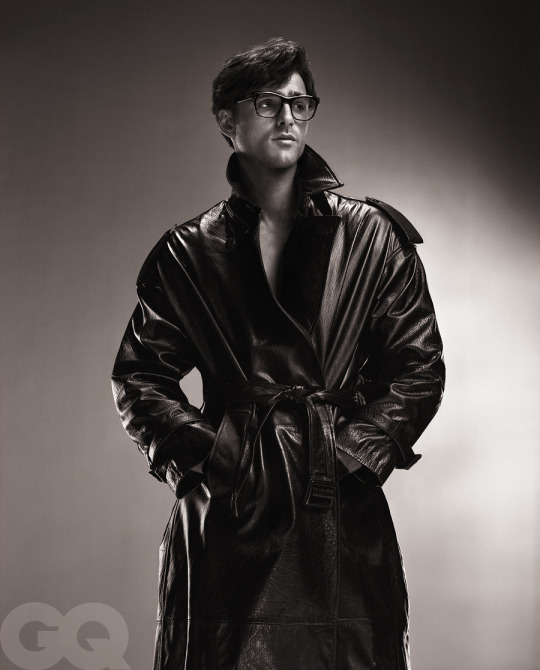
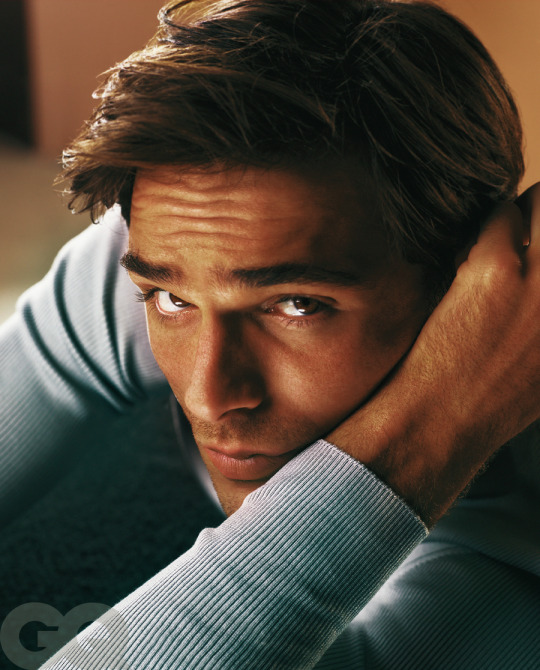
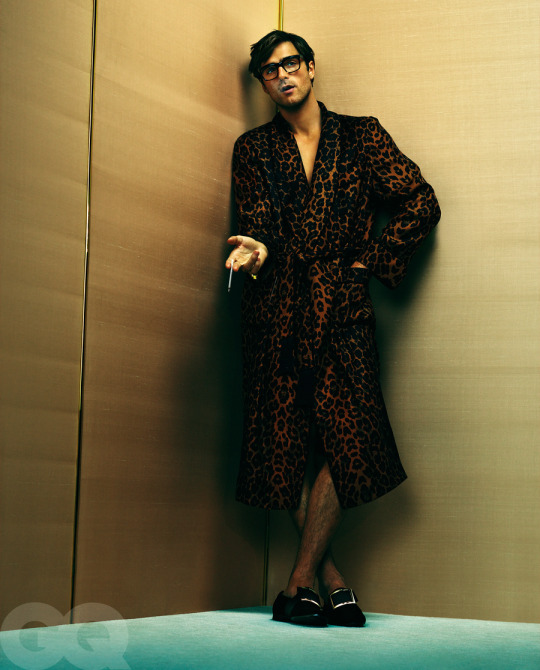

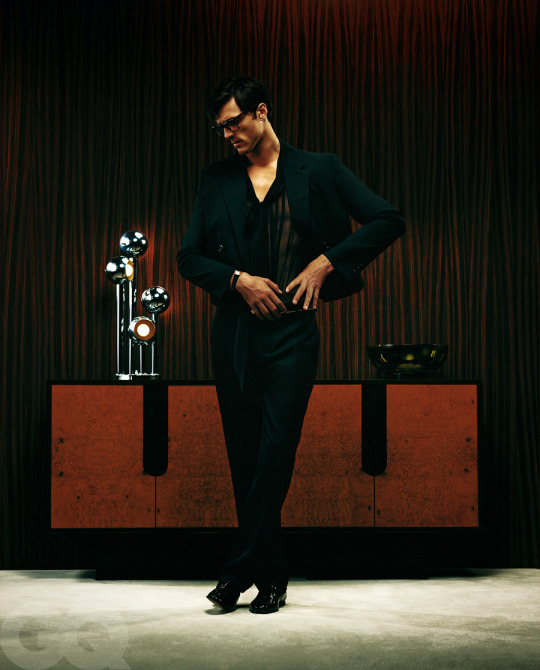
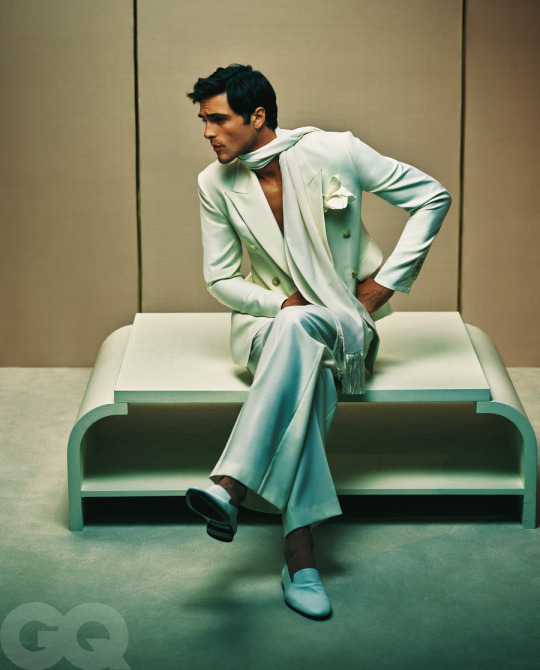
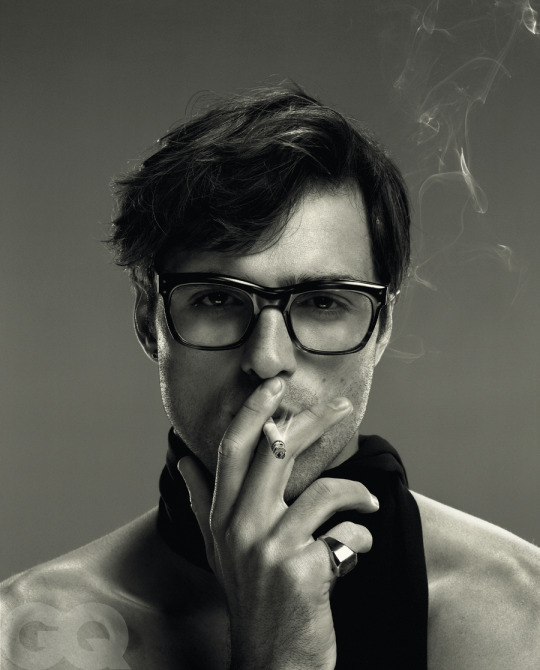
How Jacob Elordi became the new King of Hollywood
“It certainly crossed my mind briefly before I’d read the script. I don’t want to tell the same story over, especially because he did such a fine job of portraying this man,” Elordi says. “It’s a completely different thing. And it’s terribly exciting, too, running into the fire a little bit. I can’t think of anything more exhilarating.”
By Gabriella Paiella
Photography By Jack Bridgland
November 13th, 2023/ British GQ
#jacob elordi#film#hollywood#film industry#photoshoot#british gq#gq style#fashion#gq#trending#saltburn#pricilla movie#sofia coppola#photografy#tv shows#euphoria#zendaya#nate jacobs#elvis presley#austin butler#leading man
197 notes
·
View notes
Text




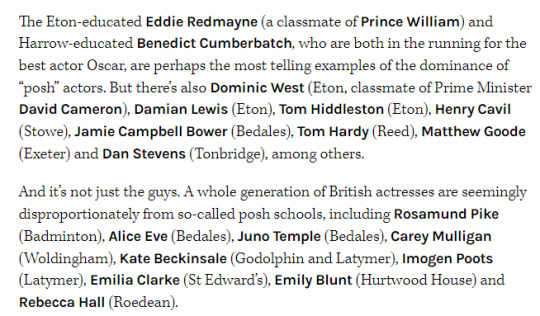



So interesting, as an American I just had this conversation not too long ago with a friend from the UK - we were talking about the latest season of You and their depiction of classism of the UK vs US. To put in plainly she explained this exactly, what James is saying.
Michael Gambon seems a little out of touch with that perception if you ask me.

^^^^
#james mcavoy#social issues#british arts#pop culture#gossip#celebrity gossip#the hollywood reporter#classism#equity#equity british trade union#film discussion#theater
116 notes
·
View notes
Text
Here are 10 things you should know about Cary Grant, born 120 years ago today. For many, he’s the ultimate Hollywood leading man, and who are we to argue?
#Cary Grant#old movies#classic film#Oscar nominees#classic movies#classic Hollywood#vaudeville#classic Broadway#precode#precode movies#pre-code#pre-code movies#british actors
57 notes
·
View notes
Text
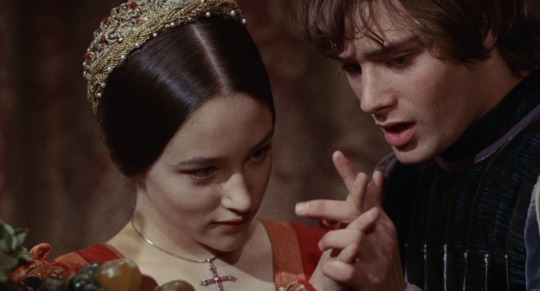
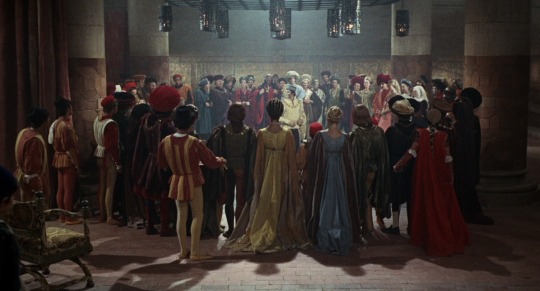

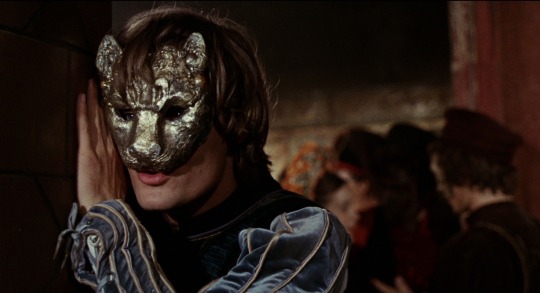
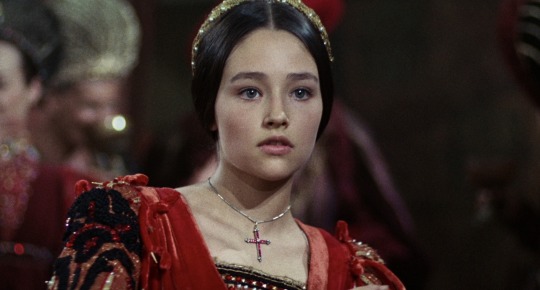
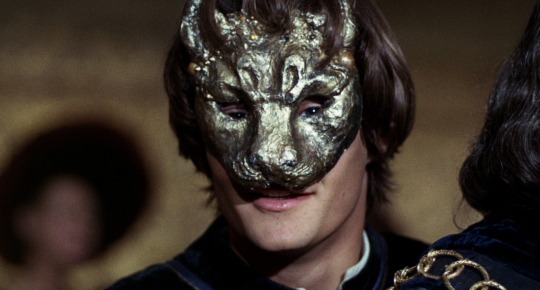
Romeo and Juliet (1968)
#romeo and juliet#romeo and juliet 1968#shakespeare#william shakespeare#olivia hussey#laurence olivier#british film#renaissance#medieval#classic hollywood#1960s#1960s films#1960s movies
178 notes
·
View notes
Text
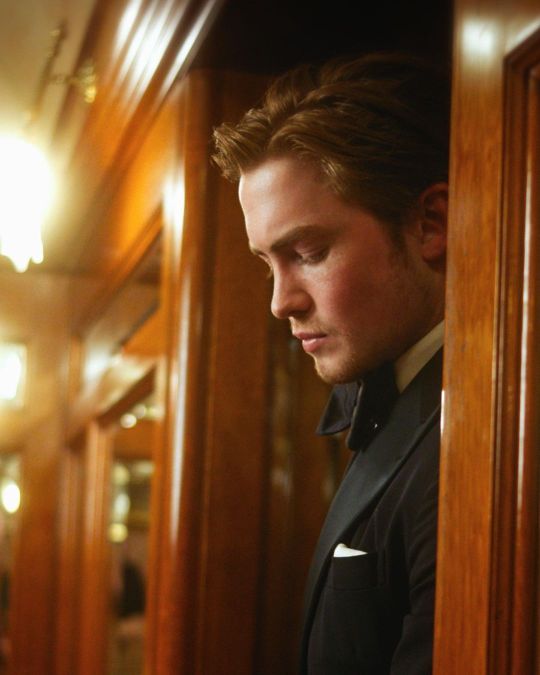

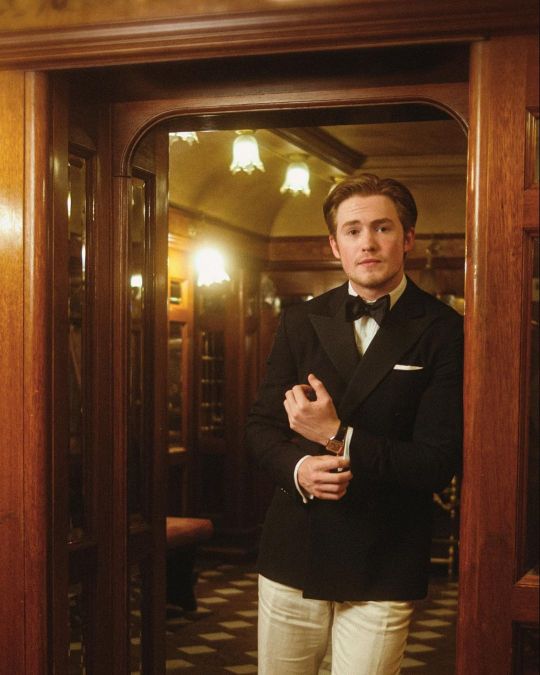
Kit Connor for British Vogue + Cartier - photographed by Owain E. Morgan
#heartstopper cast#kit connor#venice film festival#british vogue#cartier#classic hollywood#queue? don't mind if i do
705 notes
·
View notes
Text
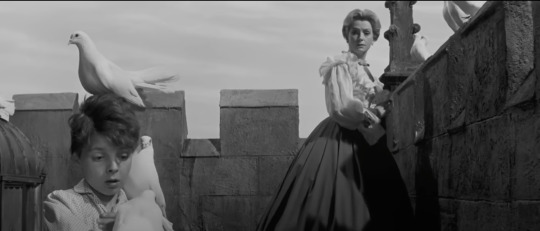


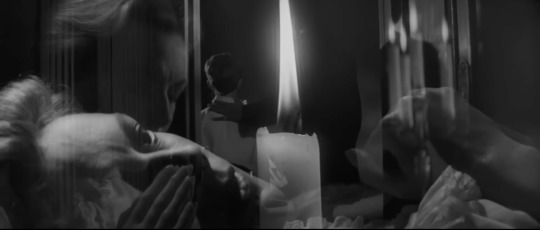

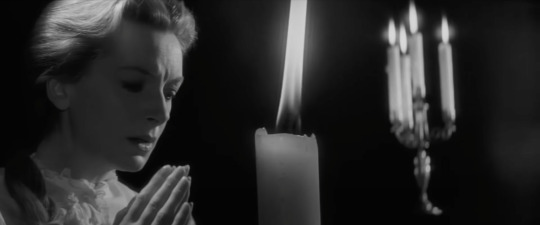

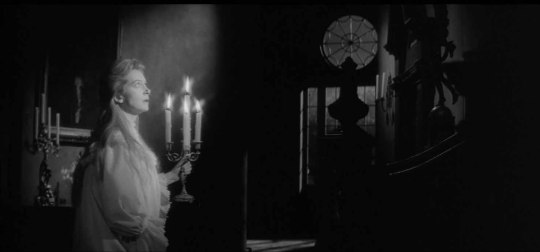
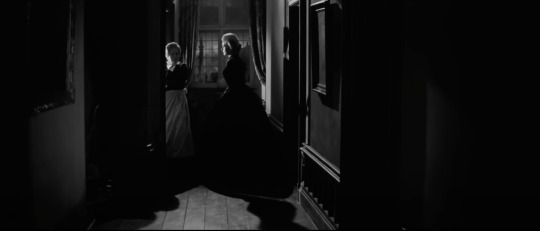

SUBLIME CINEMA #678 - THE INNOCENTS
The 60's creepiest film has some of the best black and white photography ever done, beautifully rendered on Cinemascope. The images are glimmering in layers of light.
The movie has an artful quality that was so ahead of its time, which makes it stand apart from the standard Hammer horror flicks people were being fed in the 50's and 60's.
#cinema#films#film#cinematography#movie#film stills#filmmaking#filmmaker#cinephile#great film#the innocents#jack clayton#British new wave#Deborah kerr#classic cinema#classic hollywood#horror#horror film#horror movie#60s#black and white#b&w aesthetic#black and white photography#hammer horror#cult cinema#cult film#60s movies
33 notes
·
View notes
Text
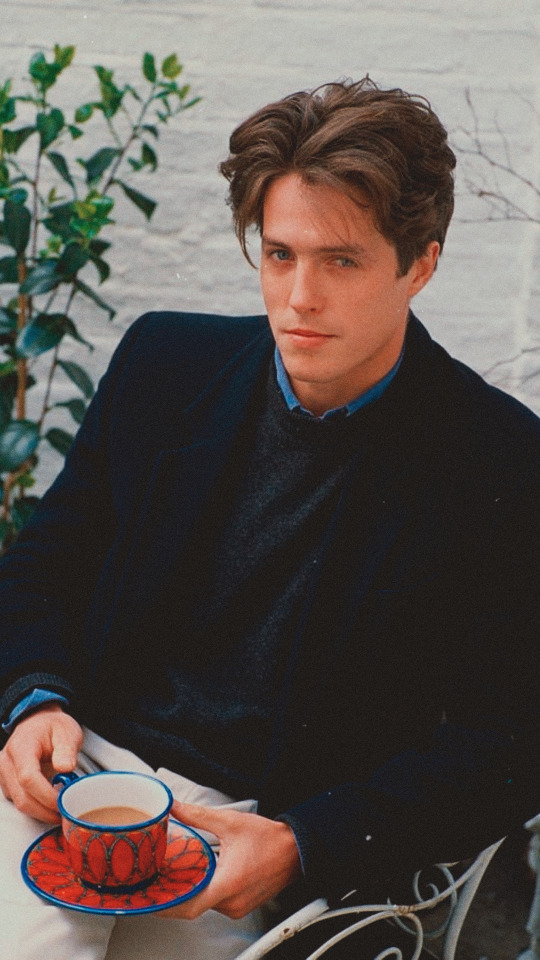
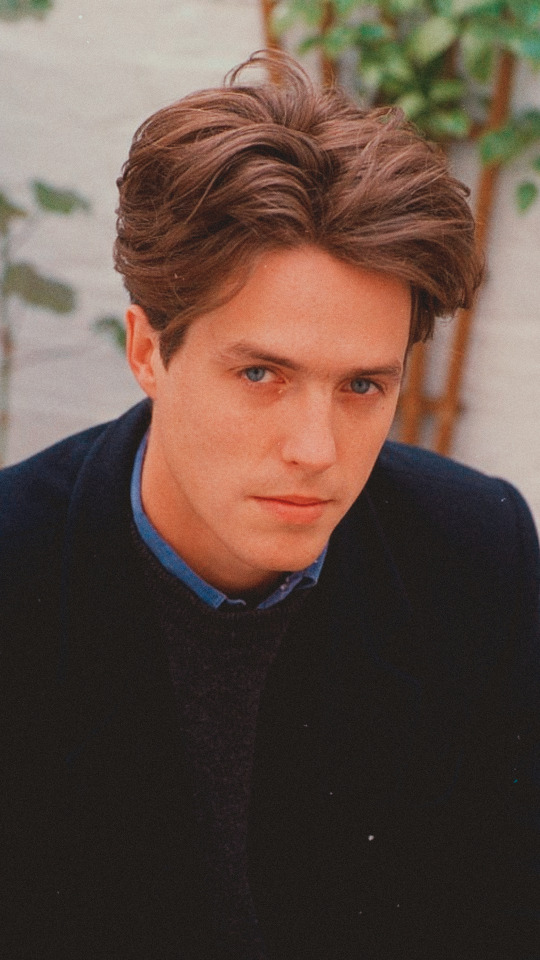
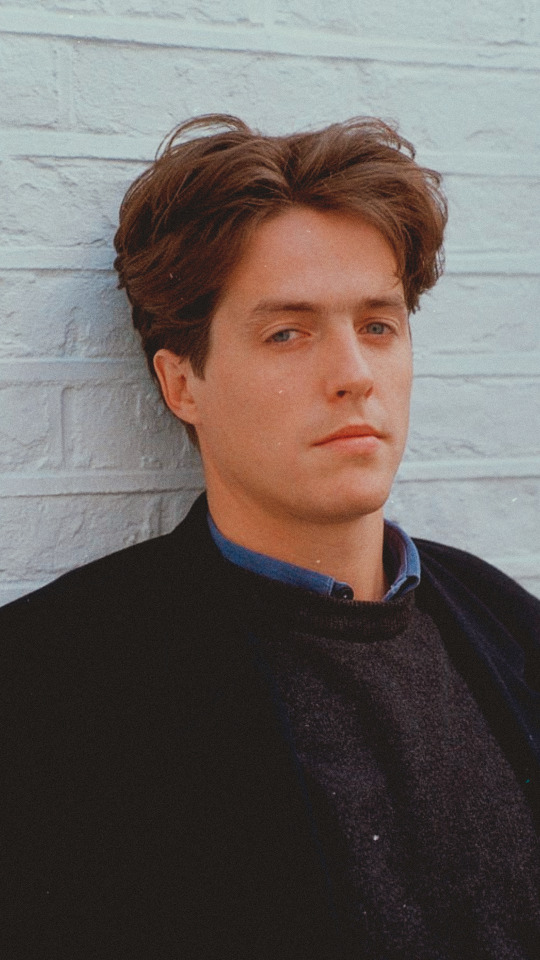

Hugh Grant ❤️🔥
#hugh grant#90s#handsome#man crush#throwback#movie#movie star#movies#film#actor#british#hollywood#hot#boy#boys#crush#grunge#hipster#indie#aesthetic
60 notes
·
View notes
Text
youtube
The Julie Andrews Story (BBC Radio, 1976) Part 1: From Walton-on-Thames to the Great White Way
The Parallel Julieverse is proud to present "The Julie Andrews Story", a special three-part radio profile produced by BBC Radio and first broadcast in January 1976.
Julie's relationship with BBC Radio traces back to her early days as a child performer in the 1940s and 50s when she lit up the airwaves as "Britain's youngest singing star". It's a testament to her enduring popularity that the national broadcaster continued to follow Julie's journey closely, crafting this rare gem of an audio profile in the mid-seventies. Based on original transcription recordings, this special video presentation offers the first chance to hear a programme that has lain dormant since its initial broadcast, half a century ago.
But beyond the mere allure of rediscovery, this video breathes life into Julie's formative years. Titled "From Walton-on-Thames to the Great White Way", Part 1 of the "The Julie Andrews Story" traces Julie's tender years from her humble beginnings in Walton-on-Thames, through the bustle of the post-war variety and concert stages, right up to her dazzling Broadway debut in the 1950s.
Adding depth and dimension are the candid insights from those who stood shoulder to shoulder with Julie. The voices of Lilian Stiles-Allen, Barbara Andrews, Peter Brough, and many more shed light on Julie's meteoric ascent. Each interview weaves a tapestry that reveals fresh insights into the artist and the woman behind the legend.
So, sit back and journey with us, retracing the footsteps of Julie Andrews as she transitioned from a young English lass to Broadway's brightest star.
DISCLAIMER: This is a fan preservation project; it was created for criticism and research, and is completely nonprofit; it falls under the fair use provision of the United States Copyright Act of 1976, 17 U.S.C. section 107. All materials used remain the property of the original copyright holders.
#julie andrews#broadway#west end#musical theatre#classic film#hollywood#british#walton on thames#Youtube
30 notes
·
View notes
Photo

I'm every bourgeois nightmare - a Cockney with intelligence and a million dollars.
- Michael Caine
#caine#miachael caine#quote#actor#hollywood#british#class#bourgeois#working class#society#film#movies#cinema#culture#icon
146 notes
·
View notes
Text

Boris Karloff drinks tea
#boris karloff drinks tea#boris karloff#horror icons#hollywood actors#horror#horror films#frankenstein#frankenstein monster#universal studios#funny#funny pictures#classic films#dark humour#colin clive#british actors
321 notes
·
View notes
Text
'So … did you cry? All of Us Strangers has finally been released in the UK after leaving cinemagoers in the US, and at various film festivals, in floods. It’s won seven gongs at the British Independent Film awards and is up for six Baftas, but no Oscars – whatever. For me, the film’s achievement is the way it’s managed to talk about love, grief and loneliness in such a powerful and original way. I first saw it at the end of September when it hit me like a ton of bricks, and I can honestly say that I’ve thought about it every single day since.
When I interviewed writer-director Andrew Haigh before Christmas, he told me that while he had designed the film to be increasingly dreamlike as it went on, the plot underneath was logical. Nonetheless, he said that he was open to other interpretations. So let’s dig into them, shall we?
When did Harry die?
At the end of All of Us Strangers, Adam (Andrew Scott) returns to his flat after meeting the ghosts of his parents for the final time. He goes to Harry (Paul Mescal)’s apartment, which he’s never entered before, and is knocked back by the smell of a decomposing body. Then Harry’s ghost appears, holding the empty bottle of whisky he was drinking when he came to Adam’s door looking for late night company at the start of the film.
It seems reasonable to assume that after being rejected by Adam, Harry went back to his flat, finished the whisky, took ketamine (Adam finds a baggie) and died of a drug and alcohol overdose, meaning that as well as reuniting with his parents who are ghosts, Adam has been having a love affair with one too.
So, about those sex scenes …
Adam is only able to let his guard down enough start his relationship with Harry once he confronts his past and meets the ghosts of his parents – after he’s first come back from Croydon, he gets together with Harry after their discussion about the terms “gay” and “queer”.
After Adam has come out to his mum (Claire Foy) back in Croydon, he has sex for the second time with Harry, who has encouraged him to take a bath because he’s feverish. It’s never made explicit in the film, but Haigh told me that Adam starts to feel unwell after his mum mentions Aids, and in the bath he tells Harry (who has no such hangups) that for years he had been too frightened of the disease to have sex with anyone. Later on in the film, as Adam runs through the tube train tunnels looking for Harry, there are old public information posters about Aids on the walls. In order to break out of his repression and fall in love, Adam has to lay to rest his terror of catching HIV.
What happens in the club?
Shot in the Royal Vauxhall Tavern in London, one of Haigh’s old haunts, this is the only big musical moment that isn’t set to an 80s hit – the soundtrack to Adam’s ketamine trip is Blur’s woozy Death of a Party, from 1997. Haigh told me that there’s a subplot buried within All of Us Strangers in which Adam manages to break out of his loneliness and live as a happily out gay man – so perhaps this is the way he would have gone out partying in his early 20s, in the 90s. While he’s high, Adam imagines himself and Harry having the long-term relationship he has yearned for – though sadly it doesn’t seem to last, with Harry gliding past him in the club after locking eyes with someone else, before Adam wakes up screaming.
What’s going on in the diner?
All of Us Strangers takes place in a mysteriously unpopulated world – a metaphor for Adam’s isolation. He and Harry appear to be the sole residents of their tower block, and Adam and his parents are the only guests in the diner where they have their last encounter, a childhood outing Adam never got to experience. The only other person is the waitress: presumably she can’t see Adam’s mum and dad, since she wonders whether he’ll be able to finish the family meal he’s just ordered.
Adam’s mum asks him whether she and Adam’s dad died quickly after their car crash – he tells her that they did, even though we know that his mum took days to die, a white lie that I felt was Adam kindly parenting his parents, shielding them from harsh truths they didn’t need to know in a moment of mature understanding.
The line that really got to me, though, was the part when Adam’s dad (Jamie Bell) tells him that he’s proud of him, and when Adam asks why, given that he hasn’t done anything, his dad replies, “Well you’ve survived. It can’t have been easy.” Finally, his parents recognise his sadness and pain, and the effort it’s cost him to keep going, even if he doesn’t have a wife, kids, a successful career or any of the other trappings of heterosexual manhood to show for it.
And what the hell is the ending about?
In the last scene of All of Us Strangers, Adam and Harry cuddle up together on a bed. Harry asks Adam to put on a record, and without him doing so, The Power of Love by Frankie Goes to Hollywood comes on – Adam was watching an old Top of the Pops performance of it from 1984 when Harry came knocking at the beginning of the film. The song contains the deeply romantic declaration “I’ll protect you from the Hooded Claw / Keep the vampires from your door”; in a (to him, unconscious) allusion to the lyrics, Harry had told Adam, as the older man turned him away, “there’s vampires outside my door”.
Now Adam and Harry can truly love, console, protect and care for each other, but it’s a brutally bittersweet image as it’s happening in some kind of supernatural realm, not real life. As the camera gets further and further away from the spooning lovers, it depicts them as one of a constellation of stars in a night sky, perhaps the other lonely strangers of the film’s title.
So is Adam also dead? I don’t think Haigh means us to think that he is. I think the image says that love is strong enough to smash the boundary between life and death, and that it’s our only defence against the infinite darkness that surrounds us, something Adam has come to understand after spending a lifetime running away from his own desperate need for human connection. Now, I think I may have something in my eye …'
#Andrew Scott#Paul Mescal#Andrew Haigh#All of Us Strangers#British Independent Film Awards#BAFTAs#Royal Vauxhall Tavern#Frankie Goes to Hollywood#Death of a Party#Blur#Jamie Bell#Claire Foy#Oscars#Top of the Pops#The Power of Love
9 notes
·
View notes
Text
Here are 10 things you should know about Ida Lupino, born 106 years ago today. She enjoyed success as an actress, director, producer and screenwriter in film and television.
#Ida Lupino#old movies#film noir#classic film#classic movies#British actresses#classic Hollywood#Golden Age of Hollywood#classic TV#classic television#precode#precode movies#pre-code#pre-code movies#female directors#female producer
22 notes
·
View notes
Text


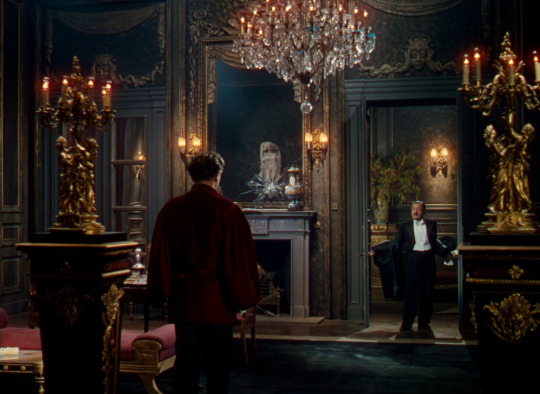
This room though…
The Red Shoes (1948)
#the red shoes#anton walbrook#technicolor#old hollywood#british film#the archers#emeric pressburger#michael powell#powell and pressburger#interior design#classic film#decade: 1940s#1940s cinema#1940s film
288 notes
·
View notes
Text
"Biopics of massively famous musicians are rarely very good, often because they stumble at the question of whom exactly they’re being made for. Are you making a movie for the already initiated die-hard fans yearning to see the life and times of their hero reflected back at them in exacting detail? Or is your movie a welcome mat for novices, a breezy jukebox of greatest hits aimed at cultivating new generations of fans, goosing streaming tallies and catalog sales in the process? Most musician biopics never manage to resolve this tension, in part because they’re usually also serving a third master, namely the musician’s estate, which tends to hold its own, very specific ideas about on-screen depiction.
Bob Marley: One Love, the new movie about the late reggae superstar that’s produced by Marley’s widow, Rita, along with some of his children, is a biopic that does seem to know whom it’s for, which isn’t a point in its favor. The film is directed by Reinaldo Marcus Green (King Richard) and stars Kingsley Ben-Adir as Marley, who does his best with the role despite not really looking or sounding much like the real Marley. (Within the past four years Ben-Adir has played Malcolm X, Barack Obama, and Bob Marley, quite the triptych of historical figures.) Lashana Lynch plays Rita and steals the film in every scene she’s in, even if the movie’s script fails to elevate her character past the archetypical suffering-yet-supportive wife of a genius.
Rather than taking a cradle-to-grave approach to Marley’s life, One Love instead focuses on a single period of Marley’s career, his self-imposed exile to England in the aftermath of the 1976 attempt on his life at his home in Kingston, during which time he recorded Exodus, the 1977 LP that marked his full breakthrough into global superstardom. The film opens with the assassination attempt, after which we’re quickly whisked to London, where the film depicts Marley writing most of Exodus’ songs in a cloying series of “eureka!” moments that tend to populate movies of this kind. Snippets of Marley’s classic “Redemption Song” surface as a recurring musical motif in the film, and in one of the last scenes, we see Marley performing the song for his awestruck family in a sappy flourish that’s also anachronistic. (By most accounts, Marley didn’t write “Redemption Song” until 1979.) Periodically we’re treated to a series of flashbacks of the singer’s earlier life, a clichéd device that this movie could have used more of: Brief forays into Marley’s conversion to Rastafarianism are surprisingly well done, and a scene of a teenage Marley and the Wailing Wailers performing “Simmer Down” at Coxsone Dodd’s Studio One is the best moment in the film.
One Love is an inspirational tale about a Great Man who used music to unite the world, one that reduces one of the most consequential and complicated artists of the 20th century to a walking fount of genial aphorisms, the guy who suggested we all get together and feel all right. As such, the film indulges a decadeslong public appetite for a particular imagining of Marley that his estate now seems depressingly eager to feed. It’s been 42 years since Marley died of a rare form of melanoma at age 36, and I’m not sure there’s a musician who’s more literally iconic: Go to any commercial district in any part of the world and within minutes you’ll find an opportunity to buy something bearing Marley’s likeness. In the United States, Marley has been a staple of dorm-room walls for generations: The casual and underinformed co-optation of Marley by American bro culture has even inspired a recurring meme in which Marley’s name is erroneously affixed to an image of Jimi Hendrix.
To a certain brand of musical cynic, Marley has become the embodiment of a musician whom people own posters and T-shirts of but don’t actually listen to, which isn’t totally fair to most of the owners of those posters and T-shirts. Some of Marley’s music is still enormously popular: His 1984 greatest hits compilation Legend is currently enjoying its 820th week on the Billboard 200, a position it will likely maintain for the foreseeable future given One Love’s early, strikingly robust box-office projections. The only album that’s spent longer on the chart is Pink Floyd’s Dark Side of the Moon.
But in the pop-cultural imagination, Legend has completely eclipsed everything else Marley ever released. The album has sold more than 15 million copies in the United States alone, while no other Marley LP has sold even 1 million stateside. From a purely mathematical standpoint, this would indicate that for many fans, Legend is the first and only Marley album they’ll ever listen to. I’m not sure there’s another greatest hits compilation that has played such an outsize role in the public definition of an artist.
Legend is a fine little collection, but the idea that it’s some sort of one-stop synopsis of Marley’s career is absurd. For starters, 10 of its 14 tracks date from the period of 1977–80, a four-year time frame that represents the height of Marley’s global popularity but is a relatively minuscule cross section of a staggeringly prolific, nearly two-decade-long recording career. (Five of Exodus’ 10 tracks are included on Legend, which I suspect is one reason that One Love is so invested in the album’s significance.)
This period also coincides with a time when Marley’s music seemed to take a step back from revolutionary politics, a tack that may have been driven at least in part by the aforementioned assassination attempt. The Marley canonized on Legend is not the Marley who sang “I feel like bombin’ a church/ Now that you know that the preacher is lyin’ ” or who called for “burnin’ and a-lootin’ tonight … burnin’ all illusion tonight” or declared that “Rasta don’t work for no CIA.” The dominance of Legend in the U.S. is particularly striking when one considers that Marley’s highest-selling album in this country during his lifetime was 1976’s Rastaman Vibration, which peaked at No. 8 on the Billboard 200 and includes such overtly political tracks as “Crazy Baldhead,” “Rat Race,” and “War.” Legend doesn’t include a single track from Rastaman Vibration, instead opting for romantic fare like “Is This Love” and “Waiting in Vain” and feel-good anthems like “One Love/People Get Ready” and “Jamming.” (For an excellent deep dive into the history and legacy of Legend, I recommend this article from the Ringer earlier this week.)
One Day’s Director Has No Regrets About the Movie’s Controversial Ending
Legend’s preeminence has helped turn Marley into the musical equivalent of a tourist destination, at which One Love is just one more cozy attraction. This is worse than a shame, because the real Bob Marley was one of the most remarkable musical talents of the 20th century. As a songwriter, he was so prolific that music seemed to pour out of him, a quality that has sometimes led to a naturalization of his gifts that veers into exoticizing primitivism. (One Love certainly partakes in this.) But rather than being some carefree savant, Marley was a fiercely disciplined and ambitious artist from the very beginning. He wrote and recorded his first single, “Judge Not,” in 1962 at the age of 16, and it remains an astonishing debut, an effortlessly catchy melody sung by a voice that sounds both nervous and supremely confident in a way that only a teenager can manage.
By the time he signed to Island Records in 1972 and began his ascent to international superstardom, Marley had already written a lifetime’s worth of great songs. He had a preternatural ear for hooks and crafted songs that were ready-made hit records, three-minute gems of perfectly crystalized musical ideas. As a singer, his indelible tenor rasp and thrillingly improvisational style were the byproducts of an extraordinarily well-honed sense of intonation and time. And during the 1970s, he fronted what might have been the best band on the face of the earth, grounded in the peerless rhythm section of drummer Carlton Barrett and bassist Aston “Family Man” Barrett, the latter of whom died earlier this month at age 77. (Aston’s son and namesake, an accomplished musician in his own right, plays his father in the film.)
One Love doesn’t know how to begin exploring this artist and his art in any way that even begins to be interesting. Instead it just feeds back the same sanitized and saccharine idea of Bob Marley to the same audience who has been eating that up for generations. It’s a movie about a poster. Over the end credits of One Love, archival performance clips of Marley flash onto the screen, and for a few moments we’re treated to sounds and images that are infinitely more magnetic and thrillingly alive than anything we’ve seen over the preceding 100-ish minutes. That Bob Marley, and the extraordinary body of music he left behind, is still out there for those who go listening for it, but this movie isn’t where you’ll find him."

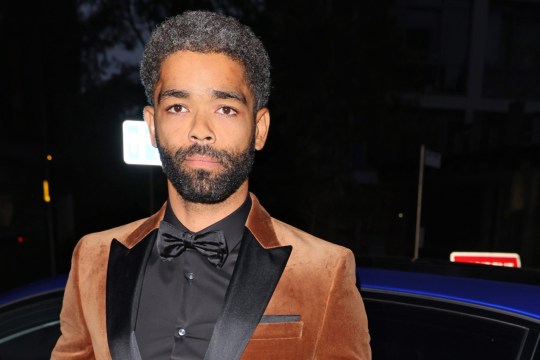
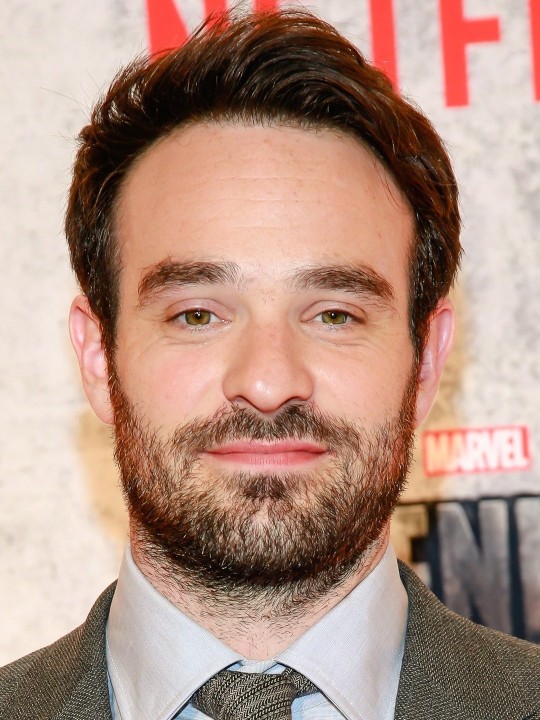
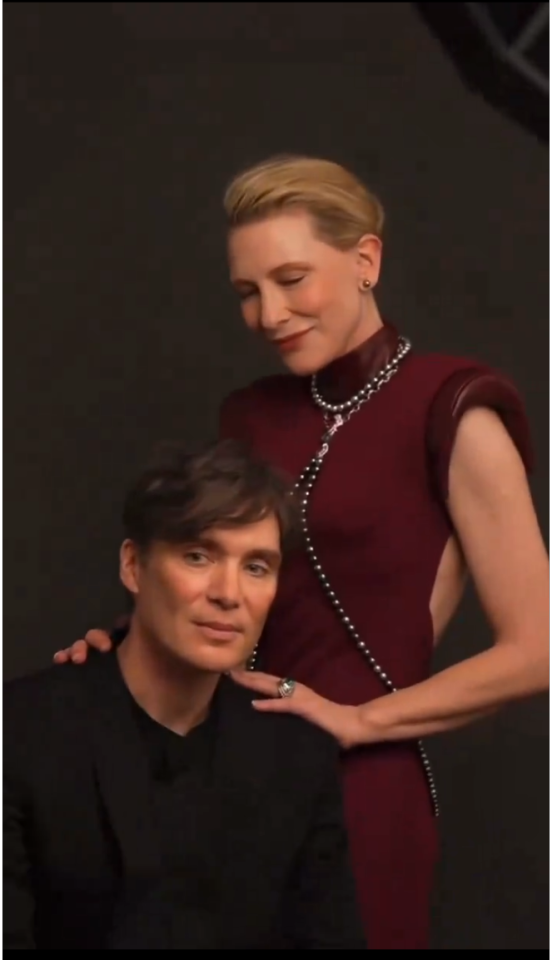
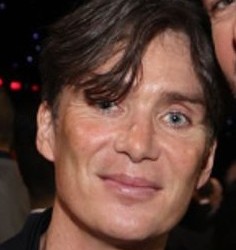

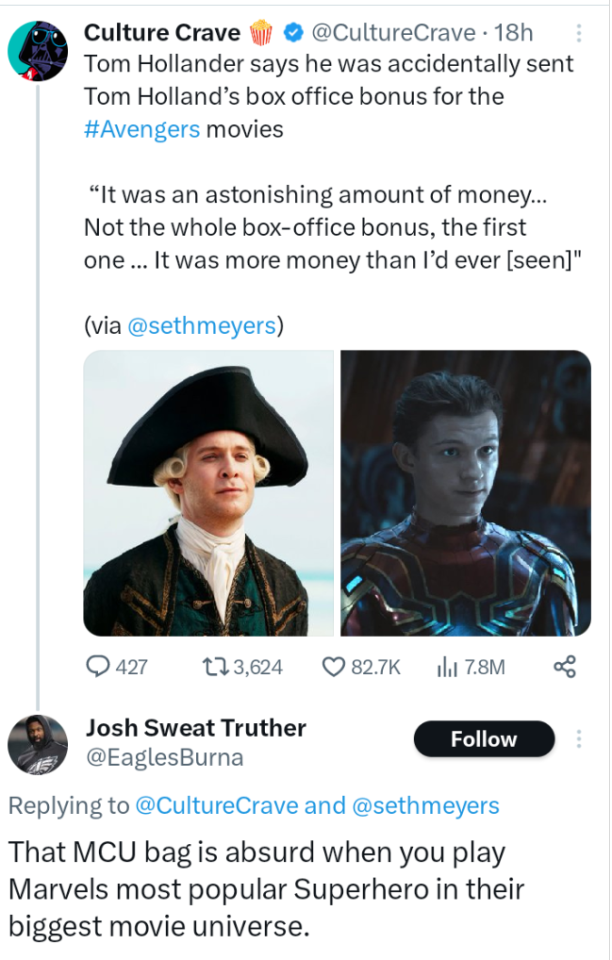
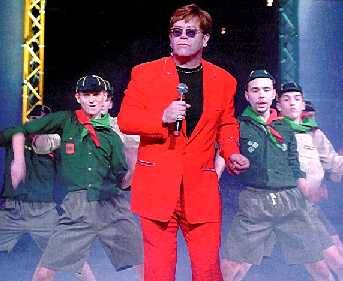
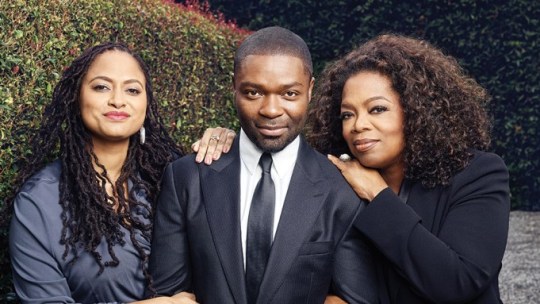
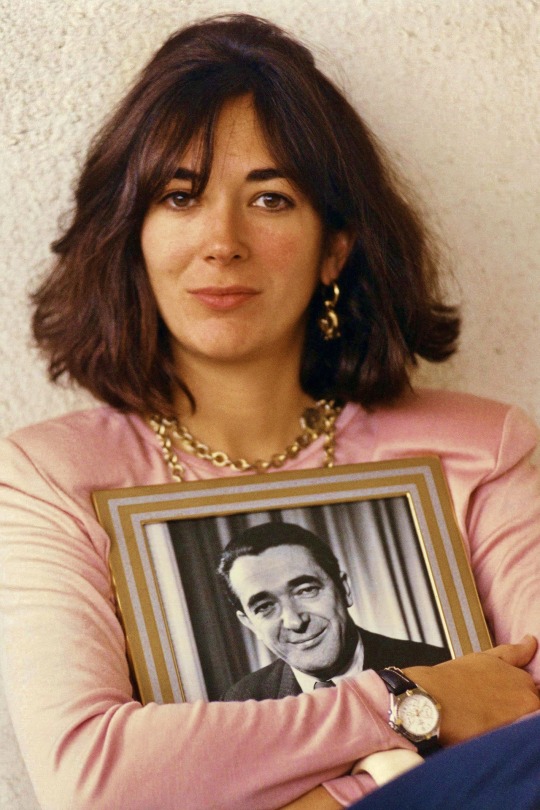
#Jamaica and The Legendary Marley Family Sell Patriarch Bob Marley Down The River For Weak Tepid White Washed One Love#Starring British Lavender Mafia Boy Kingsley Ben Adir#Irish Mob#Corrupt British Film Industry#British Thugs Allowed To Play Historic Black Figures#Malcolm X#Barack Obama#Hollywood Gay Mafia Connections#Scientology#Sony Pictures David Geffen#Warner Bros#David Zaslav#IAC#Barry Diller#Kingsley Ben Adir#David Oyelowo#Tom Hollander#Kristen Stewart#Elton John#Cillian Murphy#Stephen Fry#Mark Gatiss#Capote and The Swans Star Used In Threat Against Spiderman Star Tom Holland#British Parliament#BBC#ITV#Jamaica Compromised#Charlie Cox#Daredevil
6 notes
·
View notes
Text
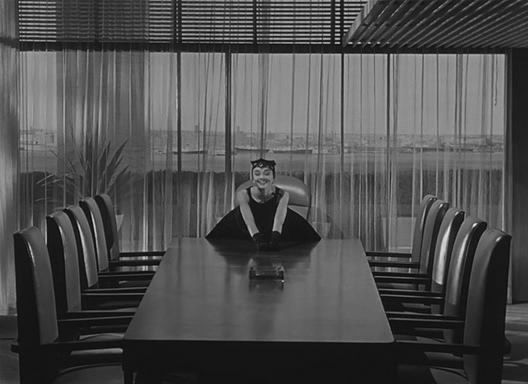

Sabrina (Billy Wilder), 1954
Darling (John Schlesinger), 1965
#films#movies#stills#Sabrina#Darling#Billy Wilder#John Schlesinger#Audrey Hepburn#Julie Christie#1950s#1960s#Hollywood#British#board rooms
9 notes
·
View notes
Photo
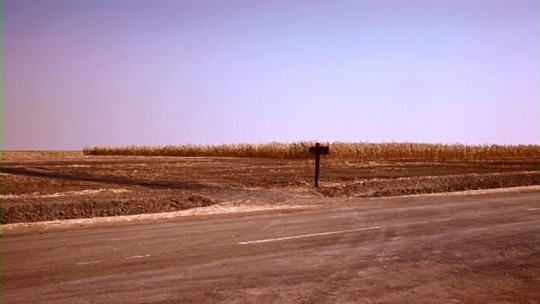
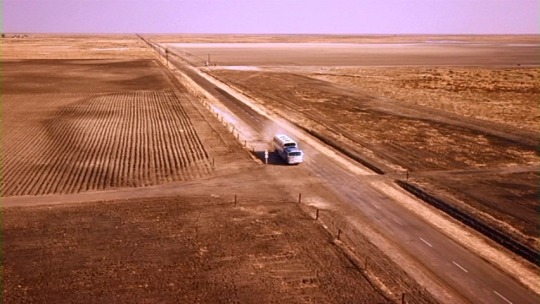


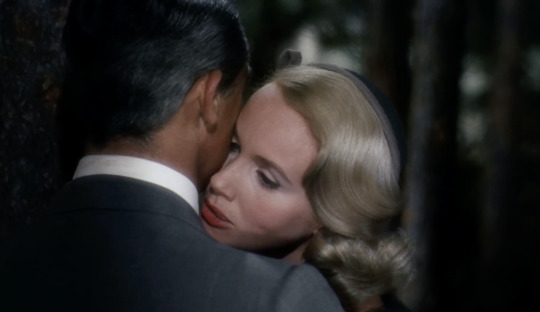
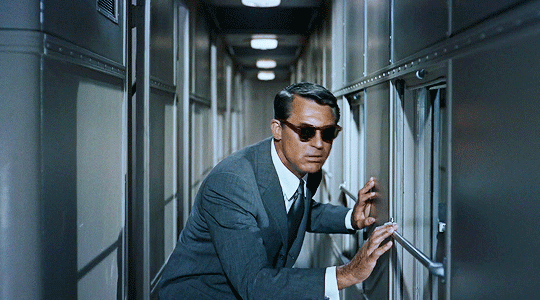

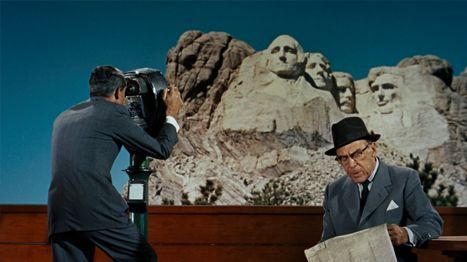


SUBLIME CINEMA #647 - NORTH BY NORTHWEST
North by Northwest is not my favorite Hitchcock film, but it is his most expansive. It’s an epic Vistavision travelogue of iconic locale after locale (Grand Central, Rushmore, the cornfield, the forests, the glistening cityscapes, the Plaza, the United Nations.. ) And of course Cary Grant, and Eva Marie Saint, whom Hitchcock famously wanted to glamorize after criticizing her roles in working class ‘kitchen sink’ black and white movies like On the Waterfront.
#cinema#film#movie#movies#films#vistavision#technicolor#hitchcock#alfred hitchcock#north by northwest#eva marie saint#cary grant#james mason#martin landau#great fiilm#great films#america#americana#hollywood film#british film#50s#50s film#50s aesthetic#classic film#suspense#thriller#color#color film#mount rushmore#plaza hotel
77 notes
·
View notes